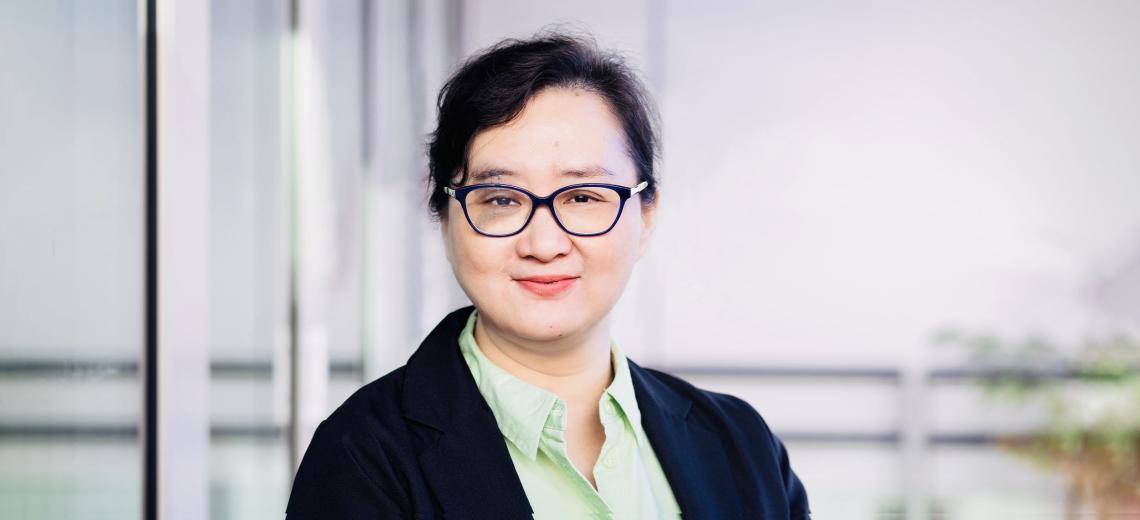
3 minute read
Dr Silviana Tana, a researcher from The Australian National University (ANU) College of Business and Economics (CBE), has long been curious about how technology changes society, and now, the artificial intelligence (AI) boom has catapulted her passion into the global spotlight.
Silviana’s research explores how we interact with digital technologies and how changes in these technologies affect our social systems.
Her doctoral thesis investigated cryptocurrencies and how they transform service ecosystems. Awarded by the University of Queensland in 2022, her PhD was nominated by the Australian Council of Professors and Heads of Information Systems and her external thesis examiners for the Best Doctoral Thesis Award and the Dean’s Award, respectively.
In this interview, Silviana discusses her forthcoming paper on digital transformation (DT) and her new research project on managing AI responsibly.
My research will help organisations, policymakers and the broader community understand how best to leverage the benefits of AI whilst minimising the risks it may bring.
Q. Can you tell us about your area/s of research interest?
My most recent work studies the processes of DT, innovation, and digital entrepreneurship. In particular, it explores how individuals, organisations, communities and society use and are impacted by digital technologies. By expanding my focus to managing AI, I am currently exploring what our future (digital) society will look like.
Q. Why is important to study how innovation impacts society?
Our reliance on digital technologies in almost every aspect of our lives makes understanding the societal impacts of technological innovations critically important. In particular, emerging digital technologies offer potential benefits and risks – many of which are unclear. By characterising and educating society on the nature and size of these benefits and risks, scholars play a crucial role in improving decisions around the adoption of new technologies.
Q. Your recent work is forthcoming in the internationally renowned Journal of the Association for Information Systems. Can you tell us about the significance of this journal and the implications of your publication, both for your own career and for RSM?
As their flagship publication, the Journal of the Association for Information Systems only accepts the best research in the field. By publishing my work, the journal’s editors have not only recognised my important contribution to the global conversation on digital transformation, but given me the visibility needed to shape the discussion moving forward.
Q. Your forthcoming paper, Digital Transformation as Collective Social Action, explores the idea of DT as a techno-social phenomenon. How does your work build on previous understandings of DT?
My paper argues that the nature and scope of DT are evolving beyond clearly defined organisational boundaries. In particular, digital technology is increasingly accessible to, and used by, more members of society, creating previously unseen transformations beyond organisations known as forms of ‘democratisation’. Given previous work focuses on organisations as the only actors driving digital transformation, I argue that new theoretical lenses are needed to explain how a broader set of social actors instigate, or are affected by, transformative change induced by digital technologies.
Q. What are the implications of your recent paper for organisations considering DT?
Before embarking on DT, organisations should develop a long-term business strategy to ensure business continuity and strategic sustainability throughout the transformation. We call this type of DT a ‘prescribed transformation’.
Organisations should also be aware that their DT will prompt ‘constructive transformation’ by social actors such as employees as they collectively establish new patterns of digital technology usage. In particular, employees' routine use of digital technology outside work hours may result in them having higher expectations and changing requirements in the workplace. In anticipation of this, organisations can establish reward systems and/or organisational units of subject matter experts to explore new types of technology.
Q. Congratulations on your recent funding through the ANU Future Scheme 2.0! What are the aims of the funded project, and who do you anticipate will benefit from your findings?
Thank you very much! I am excited and very grateful for this prestigious grant. AI introduces new ethical, legal, and institutional challenges – intentionally and unintentionally. This ‘dark side’ of AI includes privacy, information accuracy, ownership, and security concerns. My research will explore how strategy and appropriate implementation can help ensure the responsible management of AI. My findings will help organisations, policymakers and the broader community understand how best to leverage the benefits of AI whilst minimising the risks it may bring. By doing this, the research will make an important contribution towards a responsible and sustainable digital society.
The ANU College of Business and Economics offers an extensive range of specialised programs. Click here for more details.
Featured expert

Silviana is a Lecturer in Information Systems (IS) with a particular interest in digital transformation and innovation, specifically related to the usage of emerging digital technologies (including but not limited to blockchain, cryptocurrency, platforms, and artificial intelligence).
